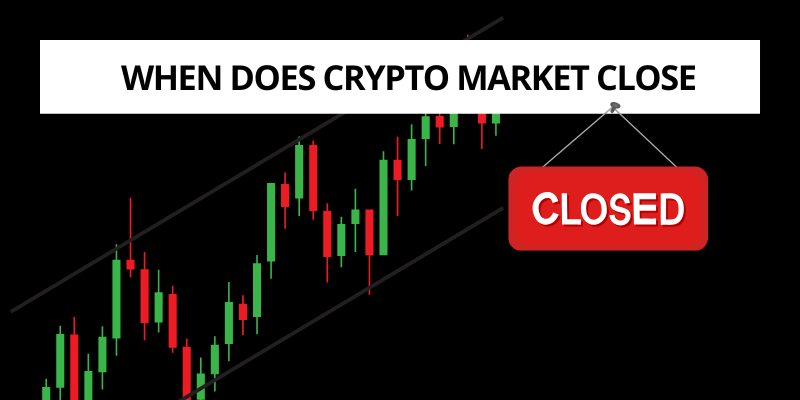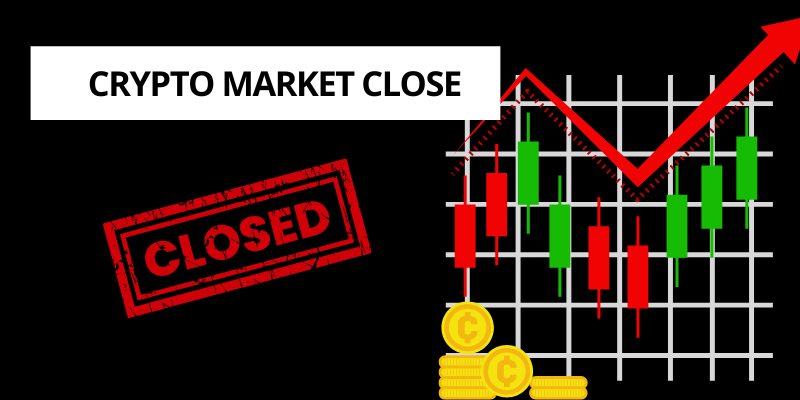When Does Crypto Market Close? Unveiling the 24/7 World of Digital Asset Trading
The question “when does crypto market close” is one that often arises among new and seasoned investors alike, especially for those accustomed to the rigid opening and closing bells of traditional stock exchanges. The cryptocurrency market, however, stands apart as a truly global, decentralized ecosystem—operating on its own rules and timelines.
Contents
The 24/7 Nature of Crypto Markets
Unlike stock or commodity markets, which are bound by the business hours of their respective countries, the crypto market never sleeps. The answer to “when does crypto market close” is simple: it doesn’t. Major cryptocurrencies such as Bitcoin, Ethereum, and thousands of altcoins are traded around the clock, every day of the year, across all time zones. This means that whether you’re in New York, London, Tokyo, or Sydney, you can access the market at any hour, on any day.

Why Is Crypto Always Open?
The continuous operation of the crypto market is a direct result of its decentralized structure. Cryptocurrencies run on blockchain networks, which are maintained by nodes distributed globally. There is no central authority or exchange dictating when trading can occur. As a result, transactions can be validated and processed 24/7, allowing exchanges such as Binance, Coinbase, and Kraken to facilitate trades at any moment
Exceptions: Maintenance and Derivatives
While the spot market for cryptocurrencies is open non-stop, there are a few exceptions worth noting. Most centralized exchanges will occasionally pause trading for scheduled maintenance or emergency technical issues, but these downtimes are typically brief and announced in advance. Additionally, some crypto derivatives—such as futures and options contracts—may have specific trading hours or daily breaks, often mirroring the schedules of traditional financial markets.

For example, on some platforms, crypto derivatives may close for an hour each day or over weekends. However, these limitations do not affect spot trading, where buying and selling the actual digital asset remains available 24/7.
Best Times to Trade: Liquidity and Volatility
Although the answer to “when does crypto market close” is that it never does, not all hours are created equal when it comes to trading activity. Liquidity and volatility fluctuate throughout the day, often peaking when major financial centers overlap. Studies have shown the highest trading volumes occur during the overlap of US and European business hours, particularly between 3 PM and 4 PM UTC (10 AM to 11 AM EST). During these times, traders benefit from tighter spreads and greater market depth.
Conversely, weekends and late-night hours in major markets can see thinner liquidity, leading to wider spreads and potentially more volatile price swings. According to industry data, approximately 35% of crypto transactions still occur on weekends, highlighting the market’s accessibility even during traditionally “off” hours.
How Does This Compare to Traditional Markets?
| Market Type | Typical Trading Hours | Open on Weekends? | 24/7 Access? |
|---|---|---|---|
| Stock Markets | 8 AM – 5 PM (local time) | No | No |
| Forex Markets | 24 hours, Mon–Fri | No | No |
| Crypto Spot Market | 24/7 | Yes | Yes |
| Crypto Derivatives | Varies, some daily breaks | Sometimes | Often |
The Crypto Market Never Sleeps
To answer the question “when does crypto market close”: the crypto spot market is open 24 hours a day, seven days a week, 365 days a year. This unique feature empowers traders and investors to act on opportunities in real time, regardless of their location or the hour of the day. While certain products like derivatives may have scheduled breaks, and exchanges may occasionally pause for maintenance, the core crypto market remains perpetually accessible—redefining the very concept of financial market hours for the digital age.